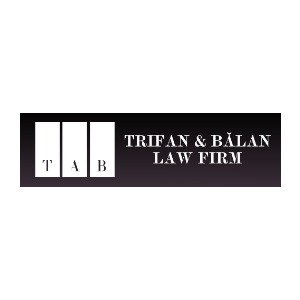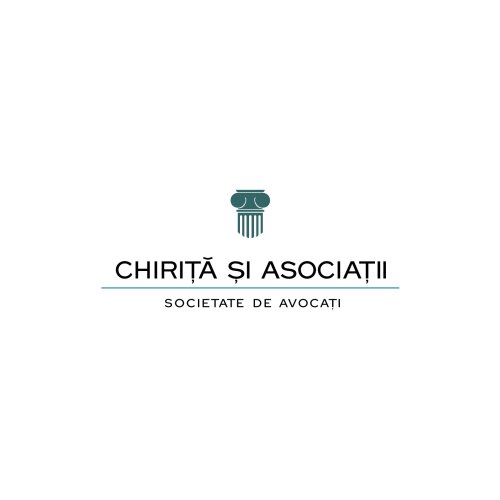Best Equity Capital Markets Lawyers in Cluj-Napoca
Share your needs with us, get contacted by law firms.
Free. Takes 2 min.
List of the best lawyers in Cluj-Napoca, Romania
About Equity Capital Markets Law in Cluj-Napoca, Romania
Equity Capital Markets (ECM) refer to the platform and set of legal processes through which companies in Cluj-Napoca and the broader Romanian market raise funds by issuing shares and other equity-based financial instruments. The ECM sector supports corporate financing by allowing companies to list and trade their shares, often via the Bucharest Stock Exchange (Bursa de Valori Bucuresti - BVB), which serves the entire country, including Cluj-Napoca. The legal landscape governing these activities is shaped both by Romanian law and relevant European Union regulations, ensuring investor protection and orderly market operations.
Why You May Need a Lawyer
Whether you are an entrepreneur, investor, company executive, or startup founder, there are various situations where legal advice in ECM becomes crucial in Cluj-Napoca. Common scenarios include:
- Launching an Initial Public Offering (IPO) or listing shares on the Bucharest Stock Exchange
- Raising capital through share issuances, private placements, or rights issues
- Structuring employee stock option plans (ESOPs)
- Complying with disclosure and reporting obligations
- Navigating mergers, acquisitions, or equity-based restructurings
- Handling disputes between shareholders or with regulators
- Ensuring alignment with corporate governance standards specific to public companies
Legal assistance ensures you comply with complex laws, avoid regulatory penalties, and structure deals efficiently for both local and international investors.
Local Laws Overview
Cluj-Napoca, as a leading economic hub outside Romania's capital, is subject to the national legal framework governing ECM. The central aspects include:
- The Companies Law No. 31/1990 - sets out requirements for company formation, management, and share capital increases
- The Capital Markets Law No. 297/2004 - regulates public offerings, market transparency, disclosures, and investor protections
- Regulations from the Romanian Financial Supervisory Authority (ASF) - oversees the operation and licensing of market participants
- Rules of the Bucharest Stock Exchange (BVB) - establish listing pathways, ongoing obligations, and trading mechanisms
- EU Directives and Regulations - particularly the Prospectus Regulation and the Market Abuse Regulation, which apply directly in Romania
These laws are updated regularly to reflect developments in the European capital markets and aim to foster a transparent, robust market environment.
Frequently Asked Questions
What is an IPO and how does it work in Cluj-Napoca?
An IPO, or Initial Public Offering, is when a privately held company offers shares to the public for the first time on a stock exchange. In Cluj-Napoca, companies typically list on the Bucharest Stock Exchange. The process involves preparing a prospectus, obtaining regulatory approval, and following strict disclosure requirements.
Can a foreign investor participate in equity capital markets in Cluj-Napoca?
Yes, foreign investors can invest in Romanian equity markets, including companies based in Cluj-Napoca, subject to local and EU regulations governing foreign investments and anti-money laundering.
What are the main risks for shareholders in Romania?
Shareholders face market risks, changes in company performance, and potential dilution of ownership during capital increases. Legal risks can arise from non-compliance with disclosure obligations or regulatory changes.
What documents are needed to issue new shares?
Issuing new shares typically requires updated articles of association, shareholder resolutions, board decisions, and filings with the Trade Registry and, if public, the Capital Markets Authority.
How are minority shareholders protected?
Romanian law provides several protections for minority shareholders, such as the right to information, voting rights at general meetings, and remedies against abusive decisions by majority shareholders.
What are the ongoing disclosure obligations for a public company?
Public companies must regularly disclose financial statements, relevant corporate events, management changes, and any information that could impact the share price to both the Bucharest Stock Exchange and the Financial Supervisory Authority.
What is a private placement and how is it regulated?
A private placement is a method of raising capital by selling shares to a select group of investors without a public offering. It is subject to fewer regulatory requirements but must still comply with prospectus exemptions and reporting rules.
How does the Romanian Financial Supervisory Authority (ASF) oversee the market?
The ASF licenses market participants, monitors trading activity, enforces regulations on disclosures, and investigates suspected market abuse or insider trading.
Are there tax implications for capital gains from shares?
Yes, capital gains from the sale of shares are subject to income tax in Romania, with rates and exemptions depending on the investor category and holding period.
What should I do if a dispute arises among shareholders?
It is advisable to consult a specialized lawyer. Disputes can be settled through negotiation, mediation, arbitration, or, if necessary, court proceedings according to Romanian law.
Additional Resources
If you need more information or regulatory guidance, consider these resources:
- Romanian Financial Supervisory Authority (ASF) - responsible for regulating capital markets
- Bucharest Stock Exchange (BVB) - provides market rules and guidance for listed companies
- National Trade Registry Office (ONRC) - manages corporate filings in Cluj-Napoca and elsewhere
- Romanian Chamber of Commerce and Industry, Cluj branch - offers support for businesses entering capital markets
- Professional associations of lawyers and consultants specializing in ECM
Next Steps
If you are considering raising capital, investing, or facing a legal issue related to equity capital markets in Cluj-Napoca, start by gathering relevant documents about your company and your objectives. It is highly recommended to consult with a local lawyer who specializes in ECM law to ensure you navigate local regulations efficiently. Your lawyer can help you assess your options, manage regulatory filings, and protect your interests throughout the process. Reach out to professional associations or the local Bar Association to find qualified legal counsel. Being proactive and well-informed will help you achieve your business or investment goals safely and successfully.
Lawzana helps you find the best lawyers and law firms in Cluj-Napoca through a curated and pre-screened list of qualified legal professionals. Our platform offers rankings and detailed profiles of attorneys and law firms, allowing you to compare based on practice areas, including Equity Capital Markets, experience, and client feedback.
Each profile includes a description of the firm's areas of practice, client reviews, team members and partners, year of establishment, spoken languages, office locations, contact information, social media presence, and any published articles or resources. Most firms on our platform speak English and are experienced in both local and international legal matters.
Get a quote from top-rated law firms in Cluj-Napoca, Romania — quickly, securely, and without unnecessary hassle.
Disclaimer:
The information provided on this page is for general informational purposes only and does not constitute legal advice. While we strive to ensure the accuracy and relevance of the content, legal information may change over time, and interpretations of the law can vary. You should always consult with a qualified legal professional for advice specific to your situation.
We disclaim all liability for actions taken or not taken based on the content of this page. If you believe any information is incorrect or outdated, please contact us, and we will review and update it where appropriate.
















